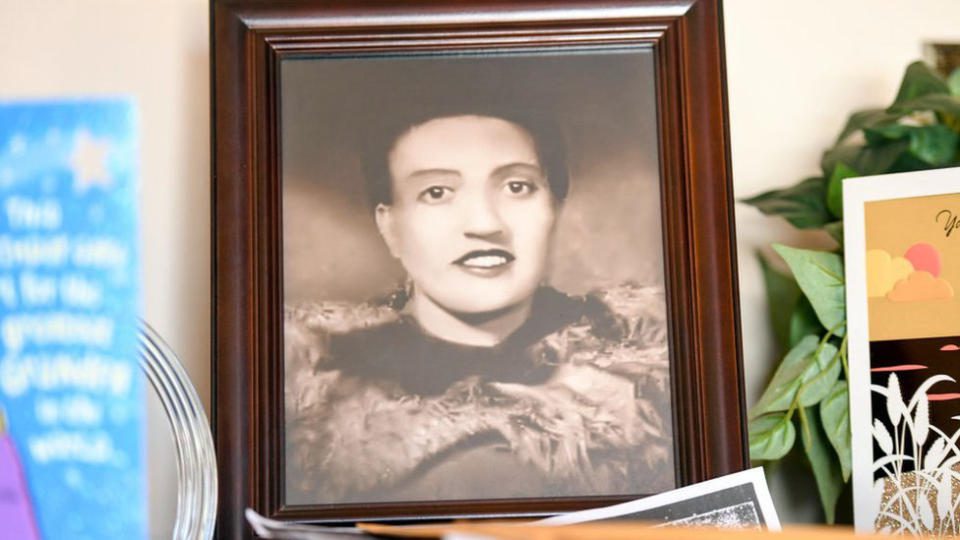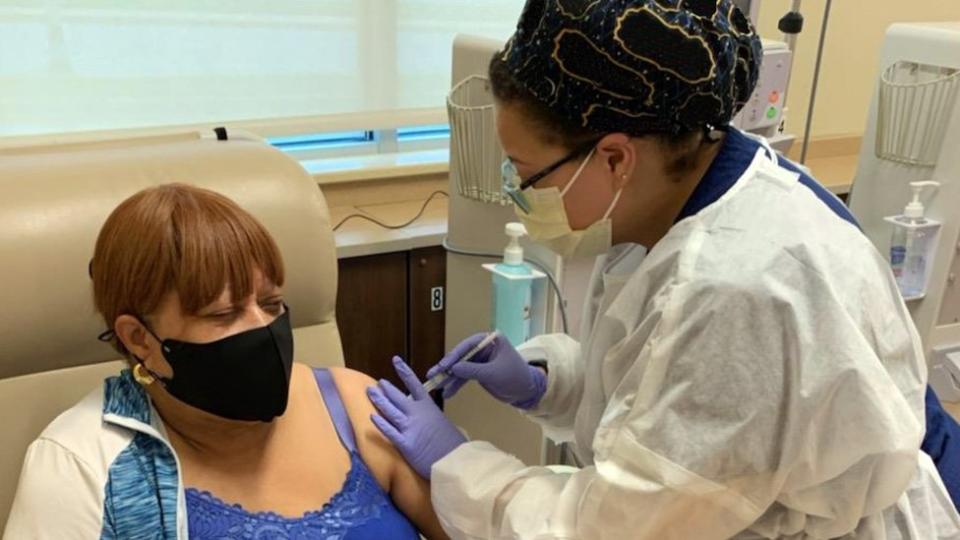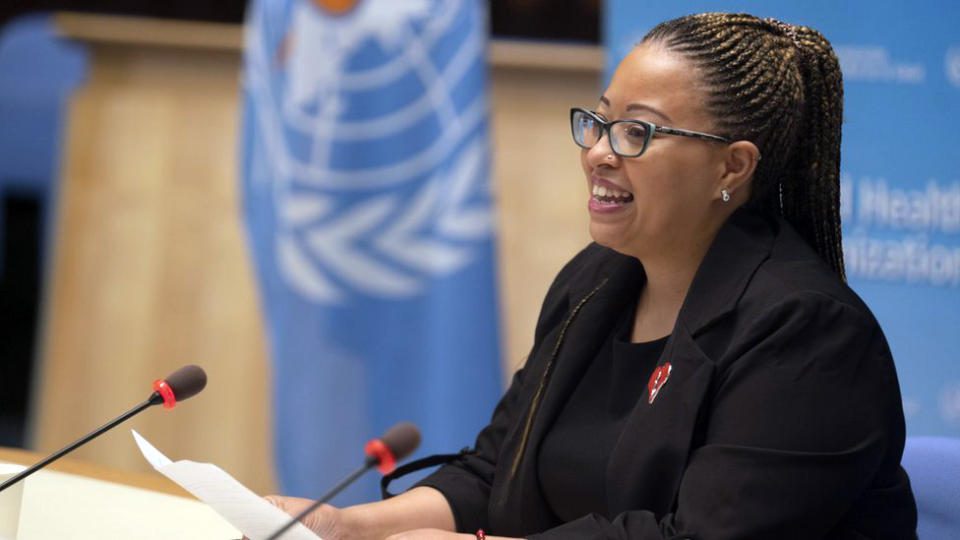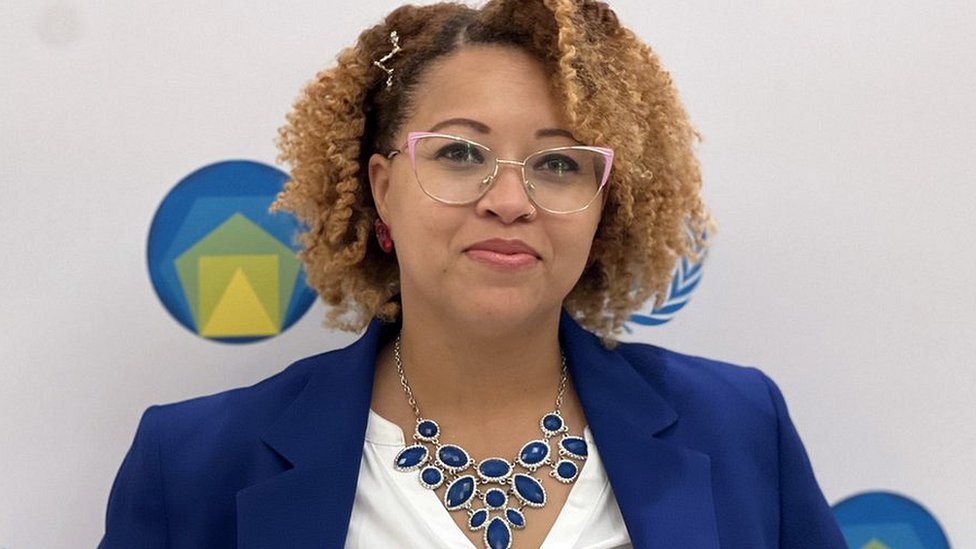
How can you ask society to trust medicine when history has given them plenty of reasons not to?
It is a dilemma that American nurse Victoria Baptiste has to deal with every day as she travels around Baltimore County, in the US state of Maryland, in a mobile clinic, applying vaccines against Covid-19.
Over the past two years, the question has kept coming up, especially from black patients: We’ve been experimented with in the past — how can we trust this treatment?
They often come across inaccurate posts on Facebook or Twitter. But these black patients’ concerns don’t just come from misinformation online — their mistrust began a long time ago.
“When they start telling their stories, they say, ‘Remember Tuskegee and Henrietta Lacks, they always experimented with black people,'” she says.
Tuskegee was a 40-year experiment conducted by the United States government in which hundreds of black men were left untreated for syphilis without their knowledge.
After the case was reported, regulations were introduced in 1974 requiring informed and voluntary consent from all research participants.
As for Henrietta Lacks, who was subjected to unethical medical research – no one understands her story better than Victoria. Henrietta was the mother of Lawrence, Victoria’s beloved grandfather.
Henrietta Lacks was an African American woman who died of cervical cancer, also known as cervical cancer, in 1951 – which The cells were used for medical research without her or her family’s consent🇧🇷
While she was being treated for cancer, tissue samples were taken from Henrietta’s cervix – and placed in a petri dish as part of a search for cells that could be studied and experimented outside the body.
She was not informed of this happening. Victoria says she was not fully aware of the effects of the cancer treatment she was receiving. Radioactive patches were sewn to her cervix to try to kill the tumour. It was an acceptable treatment at the time, but she was not told that it could prevent her from having more children.

While other cell samples died quickly despite the scientists’ best efforts, Henrietta’s cells not only survived, but multiplied rapidly, leading to her being called “immortal.”
The staggering increase in these cells, the hallmark of her cancer, would be devastating for her – but it’s a revolution for science.
This stock of human cells could then be used to test treatments for diseases, improving the speed and safety of medical research.
Henrietta Lacks – baptized HeLa cells – have been involved in understanding cervical cancer, tuberculosis, Ebola and HIV, and also laid the foundation for vaccines against polio, HPV (human papilloma virus) and COVID-19.
They have benefited millions of people – and may have made billions of dollars for the pharmaceutical companies that used them to test their products.
However, the Lax family had never seen a single penny of this profit. At one point, some family members could not even afford health insurance.
The full details of HeLa cells only came to the family’s attention when science writer Rebecca Skloot, who wrote a best-selling book about the case, began investigating.
So when Victoria says she understands why people are so wary of the pharmaceutical industry, she means it.
nurse in the family
Victoria grew up hearing about the mother Grandpa Lawrence lost before he reached adulthood: a mother of five who took care of everyone and longed for more children, who loved to cook, dance, and look pretty.
Victoria and her legion of cousins — best friends to this day — spent her childhood running around the home of Henrietta’s husband, David, better known as Day. Thanks to him, Victoria became a nurse.
“He had diabetes when I was a kid, and I was always very curious and asked questions like, ‘Why are you giving yourself a dose?'” What is it for? “He was always very patient with me.”
She ended up, eventually, learning how to give insulin injections.
In early 2020, Victoria was working as a nurse in the hospital’s kidney unit. But when she hit Covid, her job changed dramatically. Like many health professionals, she dreaded bringing the disease home.

Afraid that you have BurntHowever, wanting to continue to care for people, in 2021 she becomes a mobile nurse, applying vaccines against COVID-19.
I soon realized she had a knack for working with people who were anxious or hesitant and had questions — directing them to the best research and helping them find information on their own.
And the story of Henrietta Lacks was on her mind.
“Knowing what my family history has been like, I don’t want anyone else’s family to have the same story. I don’t want them to feel silent or a silent voice in their care, the way Henrietta was.”
For someone who feels personally connected to the darker side of what’s been done in the name of science, Victoria knows that simply asking patients to ignore online rumors and trust science won’t be enough.
“I would never try to avoid talking about these difficult topics,” she says.
“Yes, those things happened to Henrietta. We’ve come a long way since then. We’re still fighting to make sure that kind of injustice doesn’t happen now.”
But at the same time, COVID-19 has had a disproportionate impact on the black community, and vaccines have been the most powerful tool available for preventing serious illness and death.
Victoria believes the real problems in medicine and the pharmaceutical industry can be recognized and demanded to be held accountable, while also recognizing the importance of independent data on a vaccine that has saved an estimated 20 million lives in its first year.
She explains to her patients how things have changed since Henrietta’s time—including safeguards such as the Institutional Review Board, designed to ensure research is conducted ethically, and the need for informed consent.
“We’ve come a long way since 1951. Research has a lot of checks and balances before things are revealed to the public,” she says.
This does not mean that there are still problems to be solved.

Now, in addition to her daily work as a nurse and with the HELA100 Family Initiative, Victoria serves as an ambassador for the World Health Organization to End Cervical Cancer, which she considers a personal mission.
“We know what we know now about cervical cancer because of the loss of my family,” she says.
It is another disease from which black people in the United States are more likely to die.
Victoria wants as many people as possible to get tested for HPV, get vaccinated and get early treatment, to reduce deaths from preventable cancer in more than 90% of cases.
“We lost a loved one to cervical cancer,” she says.
“But it was through his death that science was able to invent vaccination.”
Photos courtesy of CELLebrate Henrietta Lacks #HELA100
This report is part of the special BBC 100 Womenwhich each year highlights 100 inspiring and influential women around the world.
– This text was published in https://www.bbc.com/portuguese/geral-63983762

“Wannabe internet buff. Future teen idol. Hardcore zombie guru. Gamer. Avid creator. Entrepreneur. Bacon ninja.”

